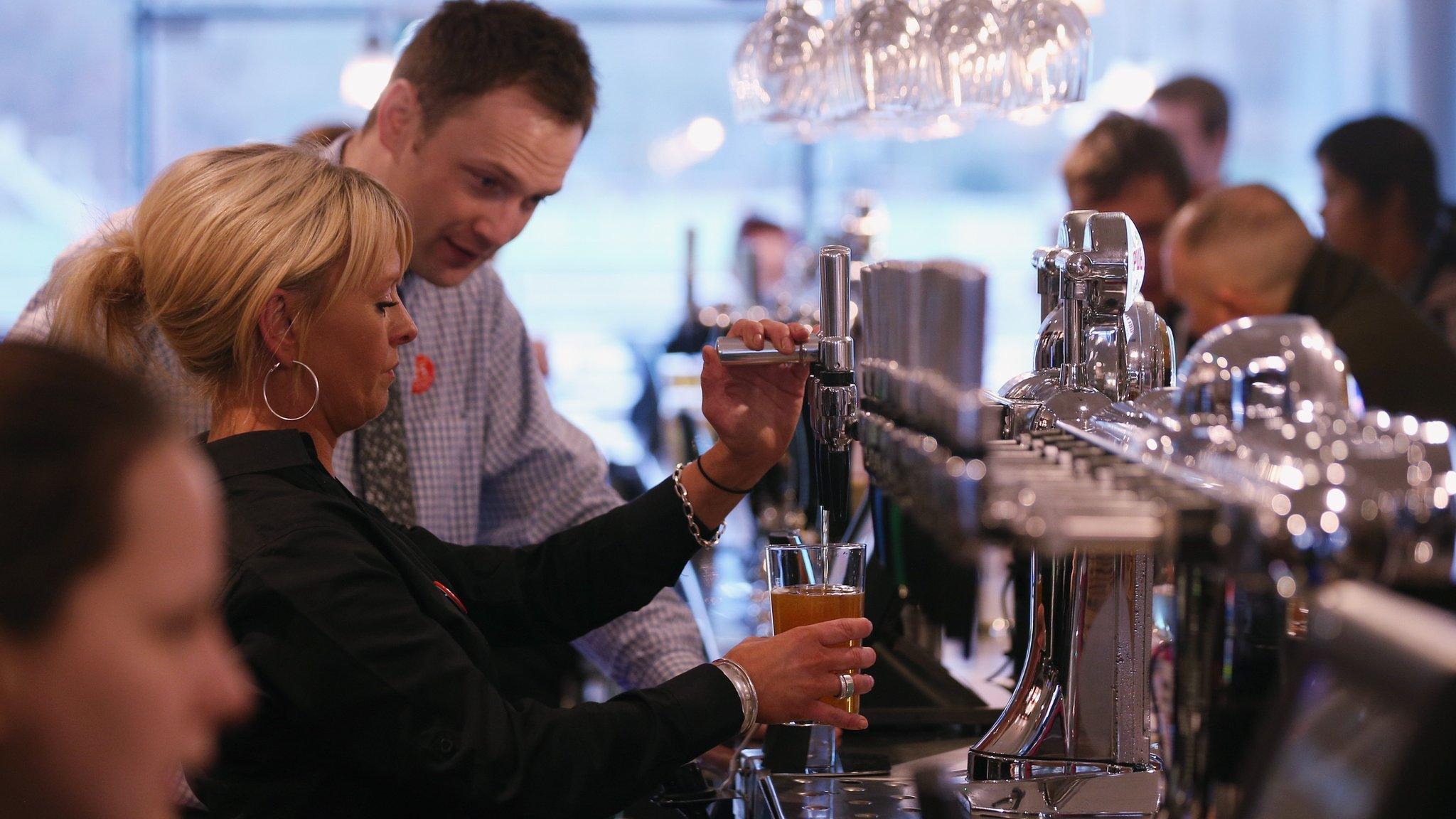National Living Wage could mean fewer jobs, says JD Sports
- Published
JD Sports boss Peter Cowgill discusses the impact of the new Living Wage
The new National Living Wage could affect jobs even if it means consumers have more to spend, JD Sports executive chairman Peter Cowgill has said.
The chain, which also owns footwear specialist Size? and outdoor specialists Black and Millets, has announced record half-year pre-tax profits of £46.6m, up 82%.
It reported like-for-like sales rose over 10% in its core sports fashion business driven by demand for branded goods.
Mr Cowgill said the increased "spending power" of customers was unlikely to outweigh higher future labour costs.
He said they will continue to recruit staff, but higher wages are likely to impact on their long-term expansion and development.
"Perhaps the repercussion in the wider sense is the ongoing cost in terms of increasing employment," he added.
The National Living Wage means that the minimum wage will be set at £7.20 an hour for over-25s from April 2016 which is forecast to rise to £9.35 in 2020.
The firm has most of its 690 stores in the UK, and unveiled its new flagship store in Oxford Street in July.
It says it is confident about its plans to expand into the Netherlands, Spain, France and Germany.
The firm said revenue was up 21% to £810m and it had made progress at its loss-making outdoor business, Blacks, in the first half year.
- Published11 September 2015
